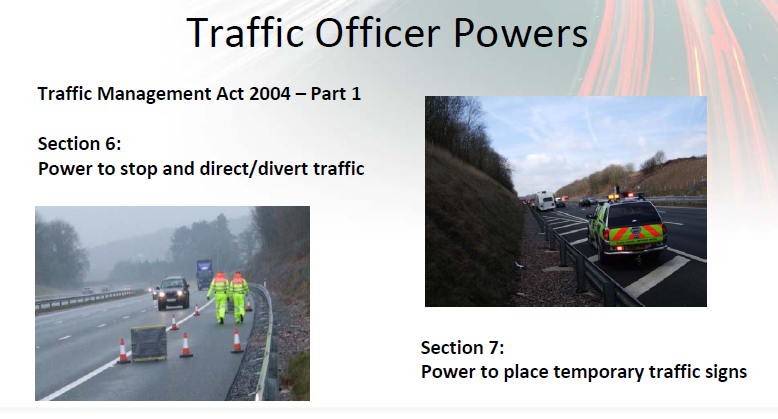
Road Network Operations
& Intelligent Transport Systems
A guide for practitioners!

Road Network Operations
& Intelligent Transport Systems
A guide for practitioners!
Traffic Officers and Mobile Safety Service Patrols (SSPs) are an important element of road network operations programmes in some countries. Transport agencies are using ITS-type systems to help them improve the efficiency of these operations.
In Europe, Asia and South America it is common for the Automobile Clubs or commercial insurance-related services to provide roadside services, such as changing flat tyres, providing a small amount of fuel, and jumping batteries. Many toll roads (also known as Road Concessions) are legally obliged to provide these services and in many cases within very tight time restraints.
Publically operated Mobile Safety Service Patrols are also deployed. Initially they were usually purely “service patrols,” providing limited roadside assistance to vehicles having difficulty – similar to the automobile club services. Today their responsibilities have expanded. For example Traffic Officers in the United Kingdom have the authority (defined in UK law) to control the traffic flow during traffic incidents and emergencies. Their responsibilities include:
Traffic Officers have also taken on other services on behalf of the Road Authority such as:
Mobile Safety Service Patrols can now push or pull vehicles from the roadway (if permitted by law), secure and clean up minor vehicle fluid spills, set up temporary traffic controls (such as, traffic cones and flares), perform minor repairs to stalled vehicles, provide information to travellers via truck-mounted Portable Dynamic Message Signs, provide “protection” for the back of the queue and assist injured passengers. Some mobile patrols use sophisticated mobile Personal Digital Assistants (PDAs) to log the “stops” they make for both efficiency of documentation and for immediate transmission of incident data to a TCC.
Whatever their mission and capabilities, the operators’ top priorities are ensuring the safety of themselves and impacted motorists before clearing the roadway. Mobile Safety Patrols are first responders and complement the role of the law enforcement agencies. The first priority of first responders and others who work on the roadway is again, the safety of themselves and road users –above all other activities. The greatest challenge for managing risk is that with time, road workers tend to accept greater risks. This requires constant re-training.
In UK “Traffic Officers” are mobile patrols whose job it is to keep traffic moving at all times. Their role on behalf of the road authority is complementary to the Traffic Police but without replace the police responisibity for law enforcement. In UK they have specific powers to direct traffic but not to enforce the traffic law. Associated with these functions are a set of key operational capabilities and performance indicators. For example:
Traffic Officers deal with the road user as a customer. They work alongside the traffic police and other emergency services (ambulance, fire brigade and vehicle breakdown). The police retain full responsibility for dealing with public security, law enforcement and criminality.
